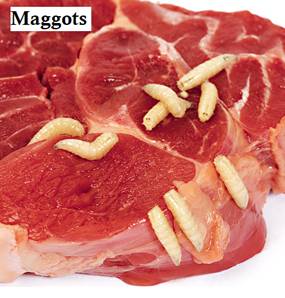The Food Safety Authority of Ireland has urged childcare workers and crèche owners to ensure they have robust hygiene practices in place to reduce the incidence of E coli.
The authority has said it is concerned at the high levels of E coli infection here, with 285 cases of human infection provisionally recorded last year.
There were nine outbreaks in children attending crèches, or who were cared for in the home by childminders.
.jpg) This involved some 75 children and adults becoming ill, with seven being hospitalised last year.
This involved some 75 children and adults becoming ill, with seven being hospitalised last year.
The FSAI says young children and infants are particularly at risk from E coli infection, and children and workers in childcare settings can unwittingly spread infection.
Washing hands is the single most important way to stop the spread of these E coli. Young children should be helped to wash and dry their hands. Babies need to have their hands washed as often as older children.
As well as handwashing, infection can be prevented by using a safe water supply and preparing food hygenically.
Staff are asked to stay away from childcare facilities for 48 hours if they have had diarrhoea or vomiting, and they should contact the Department of Public Health for advice to prevent more cases.
The FSAI has just published a leaflet – How to Protect the Children in Your Care – which is freely available on www.fsai.ie.

 FSAI were individually followed up and investigated by environmental health officers throughout the country.
FSAI were individually followed up and investigated by environmental health officers throughout the country. shops and other food businesses were served with closure orders last year — the highest tally since it was established in 1999.
shops and other food businesses were served with closure orders last year — the highest tally since it was established in 1999.(1).jpg) on seeds to multiply by several orders of magnitude during the sprouting period.
on seeds to multiply by several orders of magnitude during the sprouting period..jpg) same source as the seeds linked to the French cases.
same source as the seeds linked to the French cases. .jpg) bacteria and other contamination.
bacteria and other contamination..jpg)

.jpg) The chief executive of the FSAI, Prof Alan Reilly, said "it was unacceptable" that so many orders had been issued in June, adding,
The chief executive of the FSAI, Prof Alan Reilly, said "it was unacceptable" that so many orders had been issued in June, adding, almost doubled in the space of a year, according to the report compiled by the European Food Safety Authority (Efsa).
almost doubled in the space of a year, according to the report compiled by the European Food Safety Authority (Efsa).  The FSAI today re-emphasized that it is unacceptable that food businesses were continuing to breach food safety laws and warned all food business operators to place robust food safety measures and hygiene practices top of their agenda for the new decade or face the full rigors of the law being imposed.
The FSAI today re-emphasized that it is unacceptable that food businesses were continuing to breach food safety laws and warned all food business operators to place robust food safety measures and hygiene practices top of their agenda for the new decade or face the full rigors of the law being imposed.